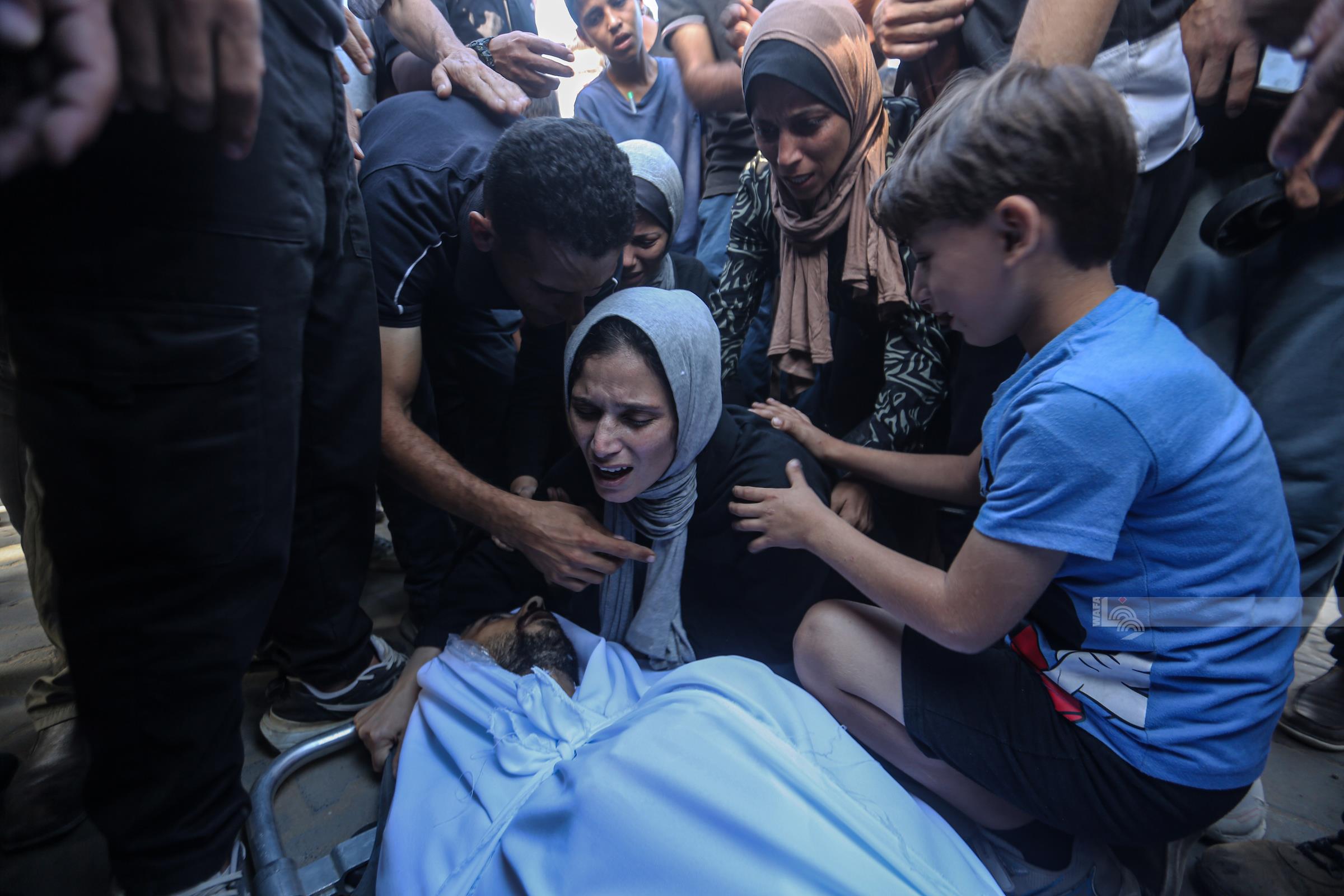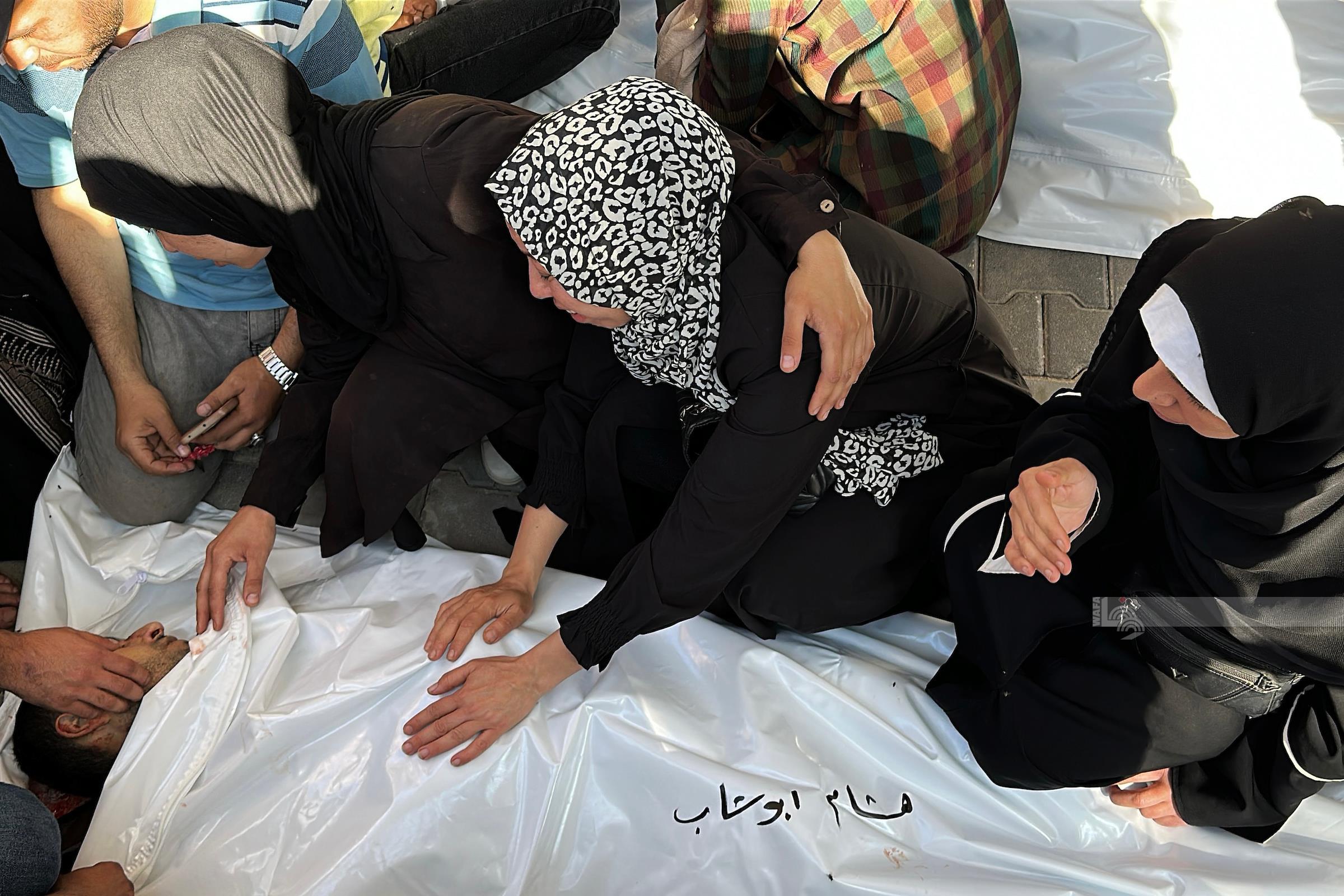GENEVA, May 27, 2025 (WAFA) - The Global Camp Coordination and Camp Management Cluster condemned on Tuesday Israeli attacks on displacement sites in the Gaza Strip.
The Global CCCM Cluster said in a press statement that it was “deeply alarmed by the escalating humanitarian crisis resulting from the renewed Israeli military offensive across the Gaza Strip, which has forcibly displaced almost 180,000 people between 15-25 May.”
“The latest wave of displacement comes as direct attacks on sites have become common, including deadly airstrike on tents in the al-Mawasi area and a school-turned-shelter in Gaza city. Intensifying military operations across North Gaza, eastern Khan Younis, and eastern Deir al Balah over the past ten days have also caused numerous casualties,” it added.
The Global CCCM Cluster “unequivocally condemned” attacks on displacement sites in the strongest terms. “These sites serve to protect displaced civilians, in line with the enduring obligation under international humanitarian law to ensure the safety and dignity of civilian populations in all circumstances.”
As one Palestinian aid worker in al-Mawasi describes, civilians are facing deep exhaustion and trauma of repeated displacement. "I’m so tired. We’ve been forced to move before, and [our family] got split up—it didn’t help. My sibling died in a 'safe' zone after they bombed it. They call places safe, then attack them. I’d rather stay home with my family and face whatever comes, at least we all die together, rather than be separated."
The Cluster pointed out that since Israeli unilaterally ended the ceasefire agreement on 18 March, nearly 616,000 people have been displaced—multiple times, some as many as ten. “During the ceasefire, over half a million people went back to their homes, mostly in the northern Strip, to try to rebuild their lives. That fragile progress has now been reversed, as intensified military operations are once again displacing families away from the areas they had only recently returned to.”
It estimated that 80 per cent of the Gaza Strip, originally only 365 square kilometers, is under displacement orders or marked as “no-go” zones. “Nowhere in Gaza can be considered safe, however, as airstrikes and fighting affect the entire Strip. Civilians are being pushed into increasingly overcrowded and hazardous displacement sites.”
“Since 18 March, over 260 sites hosting over 125,000 individuals have been impacted by displacement orders, forcing many to relocate once again, while others remain in place, still exposed to hostilities and lacking options for safer refuge.”
“With the ongoing aid blockade, there has been no guarantee of shelter, assistance, or protection for civilians. Constant movement restrictions and indiscriminate strikes on civilian infrastructure, including shelters, schools, hospitals, and tents, over the last 19 months have continuously exposed civilians to immense danger and raise grave concern.”
Raised significant concern over Israeli aid distribution plan, known as the Gaza Humanitarian Fund, the Cluster said: “These arrangements risk circumventing established humanitarian coordination mechanisms, undermining humanitarian principles and putting civilians at further risk by promoting displacement without essential protection or adequate access to lifesaving services.”
Recalling that “Humanitarian operations worldwide are guided strictly by the principles of humanity, neutrality, impartiality, and independence–these apply equally in Gaza,” the Cluster stressed that “Aid must be delivered solely based on needs, not military or political considerations.”
It also stressed the need for humanitarian actors to “maintain the ability to meet people where they are, whether in communities or displacement sites, to assess risks, vulnerabilities, and deliver assistance to those most in need. The UN-coordinated plan to resume principled aid delivery is the only humanitarian solution to reach displaced communities in Gaza with the support they need to survive.”
While humanitarian partners continue to deliver lifesaving assistance and essential services across Gaza, the Cluster said that “the primary obstacle remains not a lack of will or capacity, but the access constraints imposed by Israel.”
It called for “an immediate end to attacks on displacement sites, unimpeded and sustained humanitarian access, and the protection of civilians irrespective of their location.”
“We stand in solidarity with displaced communities in Gaza and reaffirm our commitment to a coordinated, community-led, and protection-centered humanitarian response,” it concluded.
K.F.









